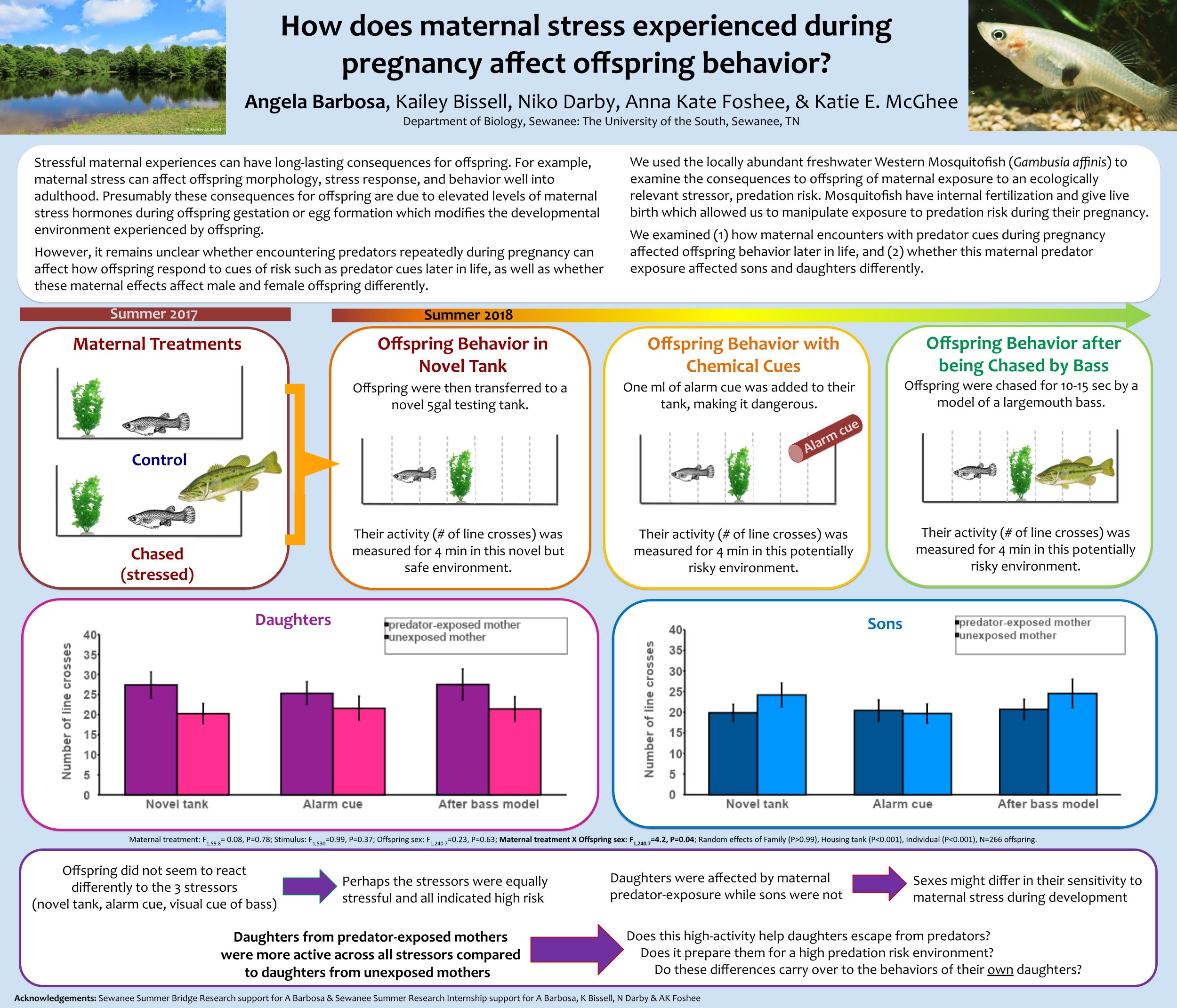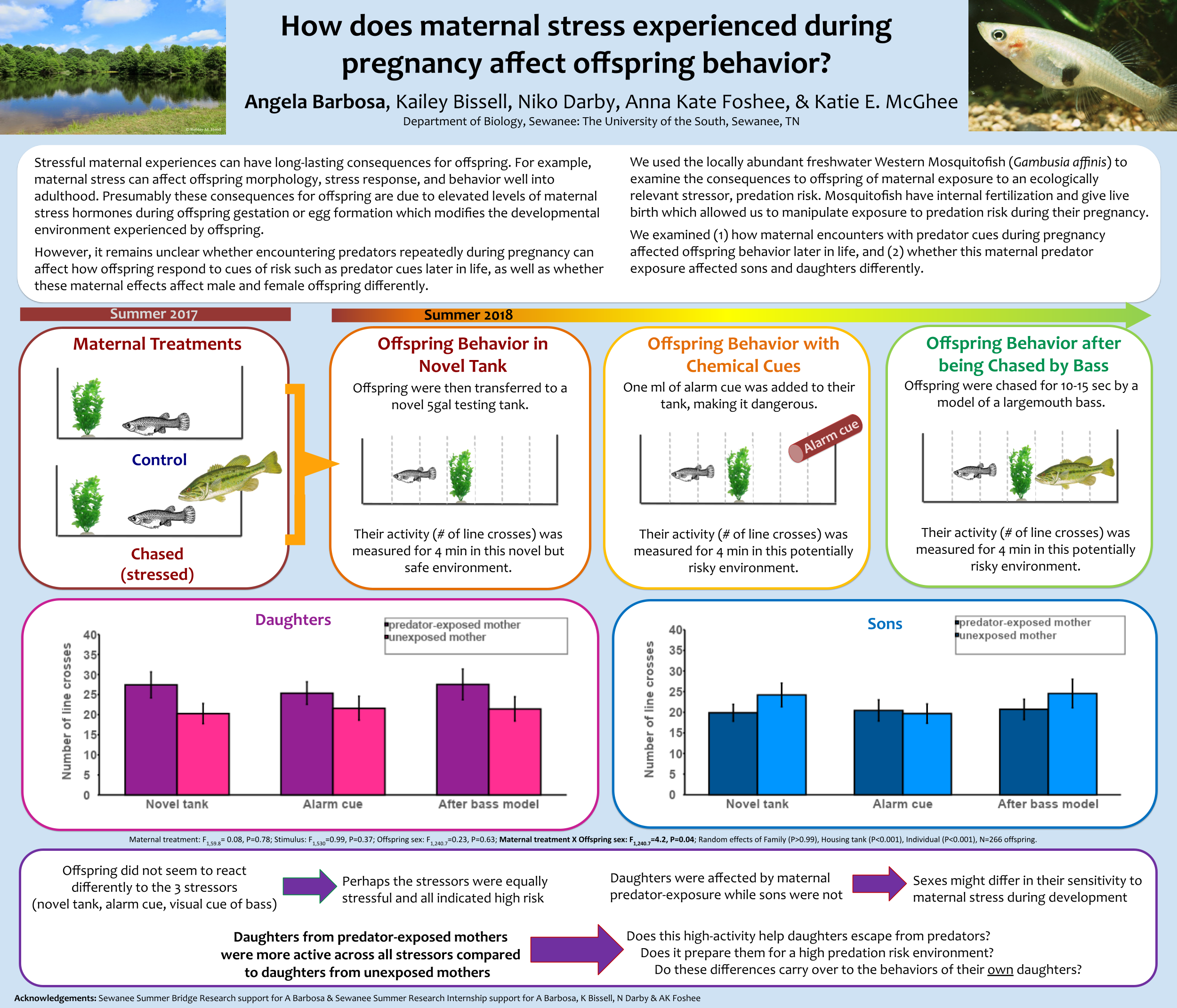
How does the stress of encountering predators during pregnancy affect offspring behavior?
Across taxa, there is growing evidence that the stressful experiences of mothers can have important and long-lasting consequences for the development of their offspring. For example, maternal stress can affect offspring morphology, stress response, and behavior well into adulthood. Presumably, these consequences for offspring are due to elevated levels of maternal stress hormones (e.g. cortisol) during offspring gestation or egg formation, and thus due to a modification of the developmental environment experienced by offspring. However, it remains unclear whether encountering predators repeatedly during pregnancy can affect how offspring respond to cues of risk, including those of predators, later in life, as well as whether these maternal effects affect male and female offspring differently. We used the locally abundant freshwater mosquitofish (Gambusia affinis) to examine the consequences to offspring of maternal exposure to an ecologically relevant stressor, predation risk. Mosquitofish have internal fertilization and give live birth which allows us to manipulate stress (i.e. cues of predation risk) during their pregnancy. We examined how maternal encounters with predator cues during pregnancy in mosquitofish affected offspring behavior in response to a novel tank, chemical cues of predation risk, and visual cues of a potential predator. Furthermore, we explored whether maternal predator exposure affected sons and daughters differently.
 CLOSE SIDEBAR
CLOSE SIDEBAR
